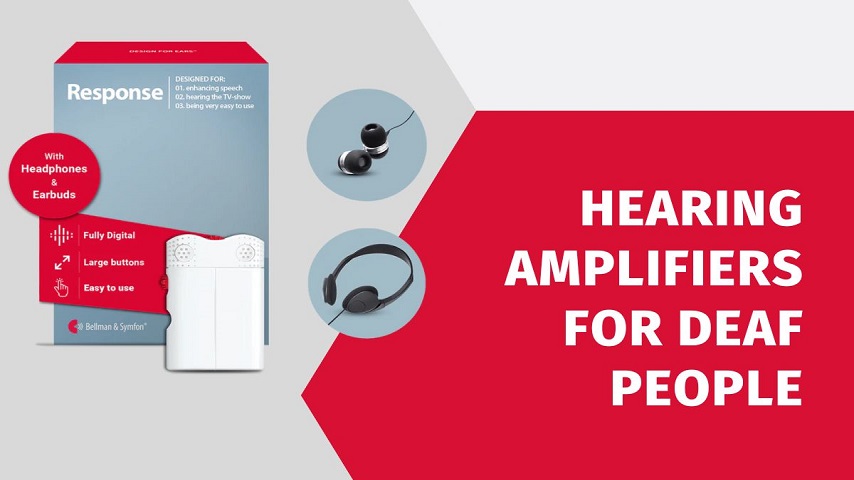
For most people, waking up on time is as simple as setting an alarm clock that produces a loud noise. However, for those who are deaf or hard of hearing, traditional alarm clocks don’t provide the necessary alert, leading to a frustrating and potentially stressful experience. Thankfully, there are specialized alarm clocks for the deaf that ensure everyone can wake up reliably, using alternative methods like vibrations, bright lights, and even extra-loud alarms.
In this article, we’ll explore the features of hearing impaired alarm clocks, how they work, and why they’re essential for creating a safe and stress-free morning routine.
Why Traditional Alarm Clocks Aren’t Enough
For people with normal hearing, a loud alarm is typically sufficient to wake them up. However, for individuals who are deaf or hard of hearing, relying on sound alone is ineffective. This lack of effective alerting can lead to oversleeping, missed appointments, and general anxiety about not being able to wake up on time.
An alarm clock for the deaf is specifically designed to overcome these challenges by incorporating multiple methods of waking someone up. Instead of relying solely on sound, these alarm clocks use vibrations, visual cues, and, in some cases, loud noises to ensure the individual is woken up, regardless of their hearing ability.
Key Features of Alarm Clocks for the Deaf
When shopping for an alarm clock designed for deaf people, it’s essential to understand the unique features that set these products apart from traditional clocks. Here are some of the crucial features that make them ideal for those with hearing difficulties:
- Vibration Alerts: One of the most popular features of hearing impaired alarm clocks is the use of vibrating devices. Typically, these come in the form of a bed shaker that can be placed under your pillow or mattress. When the alarm goes off, the device vibrates intensely to wake you up through physical movement rather than sound.
- Bright Strobe Lights: Many deaf alarm clocks include strobe lights that flash brightly when the alarm is triggered. These lights are powerful enough to wake even the heaviest sleepers by catching their attention with bright, frequent flashes.
- Extra Loud Alarms: For individuals who are hard of hearing but not entirely deaf, some alarm clocks come equipped with extra-loud sound settings, often reaching volumes much higher than standard alarm clocks. This can help individuals who may still be able to hear louder sounds.
Top Alarm Clocks for the Deaf: Our Recommendations
Vibio Portable Bluetooth Bed Shaker
You are in control of how you will wake up by choosing the vibration power from soft to strong and set up to 10 multi alarms.
In the Box
- Vibio
- Rechargeable Lithium Battery
- USB Cable
- User Manual
Alarm Clock Pro
The alarm clock pro with a bed shaker. The alarm clock pro for deaf is also user-friendly with easily adjustable alarm and time settings.
In the Box
- Alarm Clock Pro
- Bed Shaker
- Backup batteries
- Power Supply
- User Manual
Why You Should Invest in a Specialized Alarm Clock
Investing in an alarm clock specifically designed for individuals with hearing impairments isn’t just about ensuring you wake up on time; it’s also about creating a more stress-free morning routine. Here’s why these specialized clocks are a wise investment:
- Peace of Mind: Knowing that you’ll be woken up reliably can help reduce anxiety. Whether you’re a deep sleeper or someone who has struggled with waking up in the past, these alarm clocks offer the assurance that you won’t oversleep.
- Safety: In case of emergencies, such as a fire, having an alarm clock that combines sound, lights, and vibrations can act as a critical early alert system.
- Flexibility: Many deaf alarm clocks can be integrated with other devices, such as smart home systems or hearing impaired smoke detectors, creating a comprehensive safety and alert system in your home.
Types of Alarm Clocks for the Deaf
There are a few different types of alarm clock for deaf or hard of hearing, each with its own set of features. Understanding these types will help you choose the right product for your needs:
- Vibrating Alarm Clocks: These are the most common type of alarm clocks for the hearing impaired. They feature a vibrating device, typically a bed shaker, that goes off when the alarm triggers. This vibration is strong enough to wake you from sleep without disturbing others in the room, making it a discreet option.
- Strobe Light Alarm Clocks: For individuals who respond better to visual alerts, strobe light alarms are an excellent choice. These clocks use bright, flashing lights to wake you up, and they are especially effective for heavy sleepers or those who sleep in dark rooms.
- Combination Alarm Clocks: Many modern hearing impaired alarm clocks combine multiple alert systems, such as a vibrating bed shaker with bright flashing lights and an extra-loud sound. These multi-sensory clocks provide the highest level of assurance that you’ll wake up on time, no matter your level of hearing loss.
Conclusion: Wake Up with Confidence
Waking up on time should be easy, no matter your hearing ability. Alarm clocks for people who are deaf or hard of hearing are designed to provide effective wake-up solutions that go beyond sound-based alerts, giving you peace of mind and a reliable way to start your day.
Whether you prefer a vibrating alarm, a strobe light, or a combination of both, there’s an alarm clock out there that will meet your specific needs. By investing in a specialized alarm clock, you’re not only ensuring that you wake up on time but also making a valuable contribution to your overall safety and well-being.







